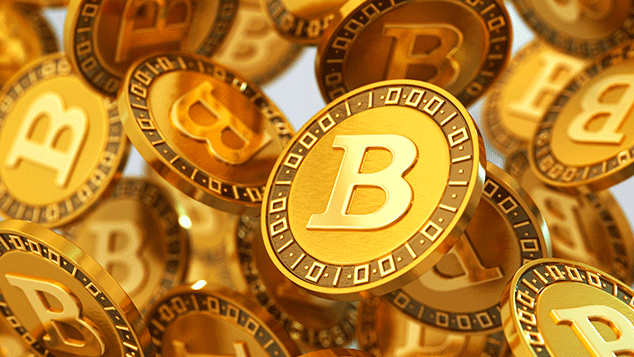Get the latest financial news, insights and expert analysis from our award-winning MoneyWeek team, to help you understand what really matters when it comes to your finances.
You are now subscribed
Your newsletter sign-up was successful
Want to add more newsletters?

Twice daily
MoneyWeek
Get the latest financial news, insights and expert analysis from our award-winning MoneyWeek team, to help you understand what really matters when it comes to your finances.

Four times a week
Look After My Bills
Sign up to our free money-saving newsletter, filled with the latest news and expert advice to help you find the best tips and deals for managing your bills. Start saving today!

John Lanchester landed on the bestseller lists in 2012 when he published Capital, the story of a London street whose residents receive unsigned postcards marked: "We Want What You Have," and whose lives are all somehow transformed by the global financial crisis. (The book was also adapted into a miniseries.) Lanchester's interest in the world of money came late. Though his father was a banker, he only became keenly interested when it came time to write his novel. He realised just how crucial the City was as an engine of London.
Nowadays, besides working on his next novel, Lanchester writes finance-themed essays and books such as How to Speak Money, published in 2014. He recently published a long and detailed article in the London Review of Books on a very 21st-century subject: bitcoin, the cryptocurrency invented seven years ago by an as yet unidentified individual.
Bitcoin, on paper at least, holds a lot of promise. It allows people to conduct exchanges without going through a bank. There is a finite supply of it, so it cannot be printed up indefinitely with potentially hyper-inflationary results. And it can't be counterfeited: every unit of the currency corresponds to an ever-expanding chain of code that's stored on a ledger and maintained by software programmers.
MoneyWeek
Subscribe to MoneyWeek today and get your first six magazine issues absolutely FREE

Sign up to Money Morning
Don't miss the latest investment and personal finances news, market analysis, plus money-saving tips with our free twice-daily newsletter
Don't miss the latest investment and personal finances news, market analysis, plus money-saving tips with our free twice-daily newsletter
Yet to Lanchester, bitcoin is an internet phenomenon that hasn't lived up to expectations, especially considering that it was born seven years ago. "Seven years, in internet years, is middle-aged," says Lanchester. "Twitter, Google, and Facebook were verbs within seven years, whereas bitcoin still is this sort of recondite, esoteric thing."
The problem, explains Lanchesteris that the cryptocurrency doesn't meet all of the definitions of money. True, it does function as a unit of exchange. But "it's not clear that it stores value very well, because the price fluctuates", he adds. As a unit of account, "the price keeps going up and down", offering little stability. Finally, it operates via something called the blockchain, which seals transactions in ten-minute chunks. "If I just give you ten quid, you've got ten quid", he explains. "We're not having a software program making a transaction queue for 90 minutes before it clears."
In short, bitcoin "doesn't feel like money". It's "experimental and clunky", and "some way off being the kind of technology that feels daily and feels routine and intuitive".
To some degree, Lanchester is speaking from experience. He tried to access bitcoin, and gave up fairly quickly. "I was looking at the various software that you'd have to download to run it on your computer", he said. "I like to know roughly what software is doing, and I felt I didn't." Besides, Lanchester found it "disconcerting" that while bitcoin lives on a computer, "the only kind of computer that is safe is one that isn't connected to the internet and is locked up in a safe deposit at a bank".
Ultimately, the novelist-cum-money-writer believes that bitcoin will end up not being used as everyday money. His prediction is that the ideas behind bitcoin will get "appropriated by the finance industry and used inside banking and finance and, say, law".
Get the latest financial news, insights and expert analysis from our award-winning MoneyWeek team, to help you understand what really matters when it comes to your finances.
MoneyWeek is written by a team of experienced and award-winning journalists, plus expert columnists. As well as daily digital news and features, MoneyWeek also publishes a weekly magazine, covering investing and personal finance. From share tips, pensions, gold to practical investment tips - we provide a round-up to help you make money and keep it.
-
 Pension Credit: should the mixed-age couples rule be scrapped?
Pension Credit: should the mixed-age couples rule be scrapped?The mixed-age couples rule was introduced in May 2019 to reserve pension credit for older households but a charity warns it is unfair
-
 Average income tax by area: The parts of the UK paying the most tax mapped
Average income tax by area: The parts of the UK paying the most tax mappedThe UK’s total income tax bill was £240.7 billion 2022/23, but the tax burden is not spread equally around the country. We look at the towns and boroughs that have the highest average income tax bill.

